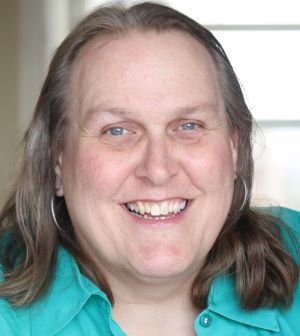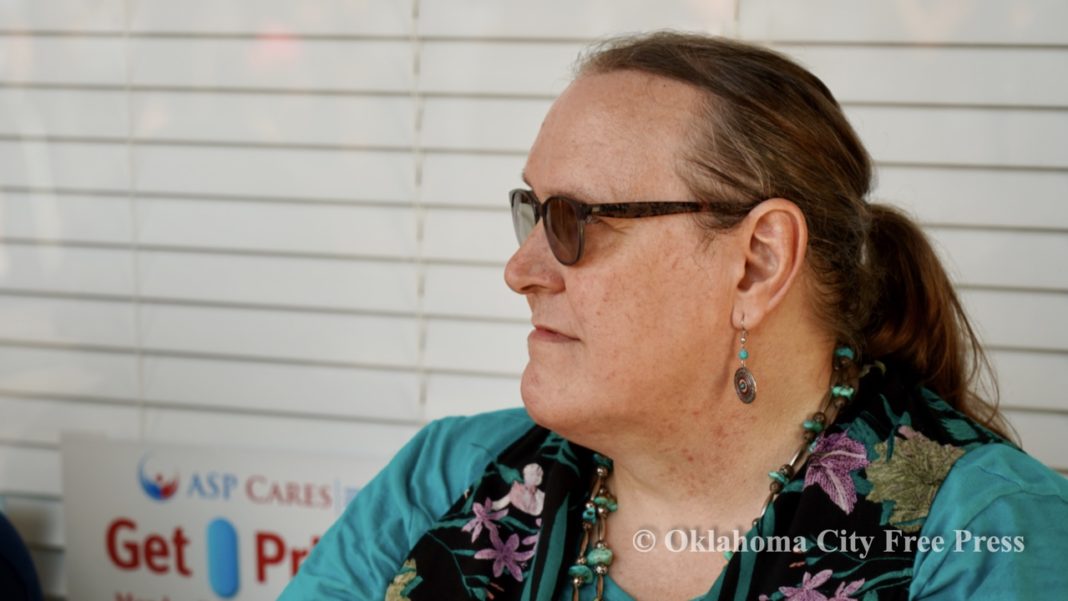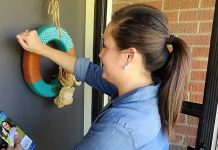Last Updated on January 5, 2024, 12:57 AM | Published: June 25, 2021
Paula Sophia Schonauer, LCSW, continues a serial memoir. If you haven’t read the earlier parts of this series, look at the bottom of this page.
“Every state of mind, left to itself, every shutting up of the creature
within the dungeon of its own mind – is, in the end, Hell.”
C.S. Lewis, The Great Divorce
The snow had begun to melt, and there were puddles of slush everywhere, dirty water in the gutters and on the streets, cars splashing dirt onto snowbanks, the sides of buildings, and people.
The sky was slate gray, no sunshine, no color. It was the long death of winter, pallid and feeble, no longer pure and white, no longer magical and silent. The streets echoed with the ambient whoosh of traffic on wet asphalt, the occasional thud of snow tires ramming over potholes, the drone of truck engines, the honk of horns bleating frustration.
I walked home from school in a funk, uncharacteristically unconcerned about the junior high boys who had always seemed to be lurking around every corner, waiting to pounce. I was ruminating about the day I’d had at school.
Since the incident at the YMCA, I had been careful to avoid going to public restrooms as much as possible, and I especially disliked locker rooms, the act of disrobing in front of other boys. During gym class, I often dallied, the last to enter the locker room, so I could change into my gym clothes alone. I hated feeling exposed and vulnerable.

I had been careful about how much I drank and ate to reduce the need to go to the restroom while at school. On the occasions I couldn’t avoid having to relieve myself during breaks, I couldn’t do my business until most of the boys had left the restroom, which caused me to be late returning to class. Other times, I would ask to go to the restroom during class to ensure solitude while I used the facilities.
For the most part, the boys didn’t use breaks to relieve themselves. They treated restroom breaks as opportunities to blow off steam, goof around, and resolve disputes that had carried over from recess. They were rowdy and aggressive, and often, I was the target, especially for Michael and Marty, his toady.
Michael was smaller than me, but his compact body was athletic and nimble. Marty was almost as tall as me, but he had more girth, at least twenty pounds heavier than I was. He had black hair and blue eyes, a startling contrast, and a mean sneer, an irritating laugh like a maniacal Rumplestiltskin.
As always, Michael got away with lots of mischief because he was the pastor’s son, and Marty was willing to do anything to be Michael’s friend. A lot of anything, it seemed, involved bullying me. They were my main nemesis, though the other boys would often join in or hang back, never intervening lest they become Michael’s new target.
On this particular day, one more tardy meant going to Mr. Haus’ office. I went to class and sat at my desk near the back of the room. After Miss Miller passed out some worksheets and gave instructions about the activity, I was feeling the need to go to the restroom. I waited until the students got to work, Miss Miller at her desk surveying the classroom. I approached her tentatively, stomach churning.
“I need to go to the bathroom.”
Miss Miller turned her head, looked at me. “We just had a break.”
“I know.”
“So, sit down.”
“But, please…”
“I don’t want to hear it. You do this all the time.”
I went back to my seat, Marty and Michael smiling and snickering at me.
We were doing a quiz on the state capitals. I knew them, had memorized them days before, reciting them to myself repeatedly, but when I tried to put pencil to paper, I could not concentrate. I felt gas building up in my bowels, and all I could do was sit there, staring at the front of the classroom, vision blurred, willing my body to obey my mind.
Finally, I could not take it anymore. I stood up and shuffled toward the door, afraid a full stride would cause an accident. I didn’t make it. I froze in place, tears welling in my eyes, a deep groan of agony building in my chest. I was afraid to move, afraid to stay.
I had one clear thought, “This was hell.”
I was almost home when I felt an object fly close to my face, another, then I felt the sting of an ice-cold impact below my right eye – an ice ball made with snow and slush, excess water squeezed down to ice crystals, dirty, hard, and painful.
The impact blinded me, and I was dizzy with pain. A group of three boys descended upon me, grabbed my blue coat at the back of my neck, pulled me down, dragging me through slush and water, soaking me. I cried out in fury, warm tears streaking my cheeks, stinging my cold face. They left me near a sewer grate, frigid water rushing through my clothing, soaking me thoroughly, laughing as they ran away.
By the time I got home, I was shivering and shaking, teeth chattering, voice quaking with pain and anger. Dad hadn’t left for work, or maybe he had been laid off again. When I got into the house through the side door adjacent to the driveway, he stared down at me from the top of the short staircase that led into the kitchen.
“What the hell?”
I removed my coat and let it fall to the floor in a loud, wet thunk. My clothing underneath was soaked as well, and I could barely stand from trembling. I peeled my socks off, my pants, and shirt. Dad continued staring at me, face blank and dispassionate.
“The… older… boys,” I said, chattering. “The older boys…”
“Did you get beat up again?”
I was almost glad to be wet, the moisture on my face concealing my tears, my shivers masking the convulsive sobbing that was building within me.
“The … boys … they …”
Dad’s eyes narrowed, a sneer on his face. “If you come home crying again, I will beat you up myself.”
He shut the kitchen door, leaving me on the landing at the top of the basement stairs. I removed the rest of my clothing, left them in a sink next to the washer. Thankfully, there was a blanket in the dryer. I wrapped myself in it and quietly padded past Dad as he sat listening to his radio on the kitchen table, classical music.
I ran up to my bed and buried myself beneath the covers, cocooning myself, crying and shivering until, after a long time, I finally felt warm.
This post is the latest of a serial memoir Paula Sophia is writing about her life. We are honored that she chose Free Press as the platform. The following links are to earlier parts of the memoir.
- Manhood, from the inside out — Memoir and Mythology
- Part 2 — Cubby Hole
- Part 3 — Magic Carpet Cocoons
- Part 4 — Snips and Snails and Puppy-Dogs’ Tails
- Part 5 — Mirror
- Part 6 – Deep Water
- Part 7 – Limbo
- Part 8 – Dissociation
- Part 9 – Shame
- Part 10 – Judgement Day
- Part 11 – Inferno
- Part 12 – Haunted
- Part 13 – Did I say that?
- Part 14 – The end times
- Part 15 – Alone again (naturally)
Guest Columnist Paula Sophia is a licensed clinical social worker in Oklahoma City and a former Oklahoma City Police Officer.







